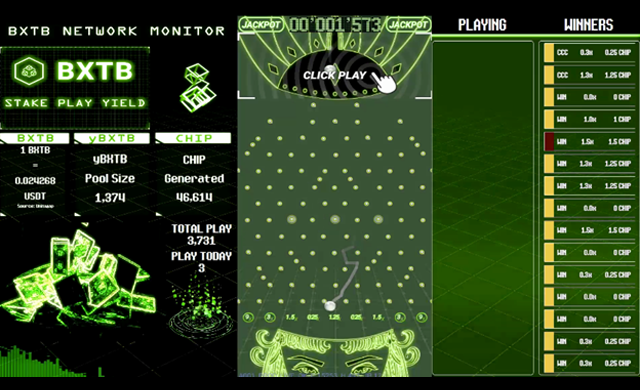Right now, DeFi is a largely crypto-centric affair. The vast majority of DeFi applications target users that already have some experience with cryptocurrencies and aren’t afraid to try out creative new technologies.

But in order to reach a mainstream audience, DeFi needs to get a whole lot more accessible, and one of the best ways to get there could be through our natural affinity to games.
Reaching the Masses
While many DeFi applications offer impressive utility and have the potential to disrupt finance as we know it, they’re still scarcely used by those with little to no knowledge about cryptocurrencies.
One of the major challenges for DeFi right now is expanding beyond the crypto-savvy crowd. With there being just north of 100 million cryptocurrency users, but only around 1.6 million DeFi users, there is still a great deal of potential for future growth in the DeFi space.
But it’s going to take something accessible and intuitive to get there — and blockchain powered games could be poised to become just the stepping stone needed for mass adoption.

Right now, there are dozens of blockchain enabled games either in development or already launched. These include simple DeFi-oriented games like the CHIP stablecoin powered Pachinko game, which uses BXTB’s game engine to enable physics-based gameplay on the blockchain, while cleverly blending in the yield earning potential of the yBXTB and CHIP cryptocurrencies.
There’s also a huge variety of popular new games in develop that subtly introduce retail players to the benefits of DeFi — including Decentraland and the Sandbox — both of which allow users to create assets and use them in the broader DeFi landscape.
With there being dozens of games with upwards of 100 million players, including the likes of CrossFire, PlayUnknown’s Battlegrounds (PUBG), Minecraft, and Candy Crush Saga — the potential to achieve mass adoption through video game exposure is clear.
Community Spirit
Undoubtedly, the cryptocurrency industry is comprised of some of the most fervent communities there is. Ranging from the original cypherpunks, to the armies of devoted followers many cryptocurrencies have on Twitter, Telegram and Reddit, it’s quite clear that the industry is a collaborative enterprise.
But video games represent a way to build this community spirit even further. The modding community many games have show how legions of players can come together to expand their favorite platforms — often for free, simply because of their appreciation of the game.
DeFi, on the other hand, generally lacks such community input. The majority of popular DeFi applications have little to no community input besides governance, and there simply isn’t much in the way of community development.
By combining video games and DeFi, players will soon be able to not only contribute to the development of their favorite platforms through community contributions, but may also be able to monetize the content they produce — similar to how modders sometimes sell their own assets and expansions to retail games.
There are several platforms being developed that look to facilitate exactly this, many of which center around allowing individuals to create their own crypto collectibles and sell them. Enjin is arguably the most prominent, since it allows users to host their own ‘initial asset offerings (IAOs), which can include creating and selling things like game characters, creatures, spaceships, plots of land, and more.
In-Games Currencies on the Blockchain
Most gamers have some experience with using in-game currencies. These are the ‘points’ or ‘credits’ used as part of the game story, and are generally simply used for purchasing in-game items.
For the most part, these in-game currencies are limited for use within a specific video game — they cannot be used outside of the game, and generally have no real-world value, barring the limited trading scene that surrounds many popular games with rare in-game assets — like World of Warcraft and Entropia.
But that might soon be set to change with the advent of in-game cryptocurrencies that are also represented on the blockchain — ensuring they have value beyond purchasing in-game assets.
This was first demonstrated in MetaGold’s War of Magi in 2017, but is becoming increasingly popular as gamers look to use their in-game currencies and assets in the broader DeFi landscape.
My Neighbor Alice — a narrative-driven builder game that features a token-based in-game currency could become the first game to directly bridge the gap between mass market games and DeFi with its marketplace and DeFi lending solution.
Imagine being able to stake your in-game items and currencies on one of the myriad yield farms or use it as collateral to take out a loan. With in-game cryptocurrencies and assets on the blockchain, this is likely to become increasingly common — and the first AAA blockchain-based game ‘Illuvium’ may be set to usher in the new standard when it launches later this year.

 Hot Features
Hot Features










